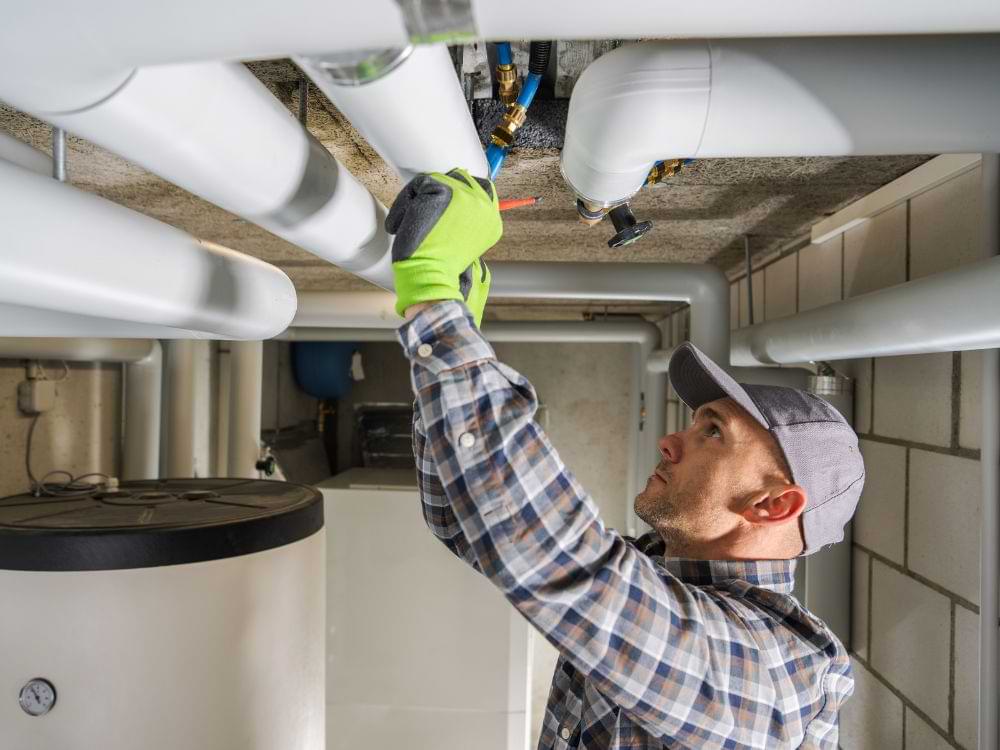Keeping your plumbing system properly maintained is an important aspect of home maintenance. This is essential to avoid costly repairs and ensure that your water quality remains high.
Performing regular inspections and routine cleaning can help prolong the life of your pipes, fixtures and appliances. Here are some tips on keeping your plumbing system properly maintained:
Visually inspect exposed pipes and fixtures for leaks, corrosion and other signs of wear. Clean aerators and showerheads regularly to prevent mineral buildup. Here are some of the many reasons why plumbing inspection and maintenance are so valuable:
Check for Leaks
Small leaks add up quickly, costing you gallons of water every day. Leaks can also damage the structure of your home and attract pests like termites. Observe exposed pipes for signs of cracking, flaking and discoloration, especially around toilets, sinks and water use appliances like dishwashers and washing machines. Replace corroded pipes to avoid leaks and structural damage.
If you notice a spike in your water bill, check for leaks immediately. Check the back of cabinets and under sinks for mold and foul smells, which are clear indicators of a leak. Look for puddles or water marks under sinks and in the basement. Shut off all
the water use appliances in your home, then read your water meter. If the dials have moved, a leak is present.
Clean the Drains
The drains in your plumbing system transport wastewater and debris, and they’re vulnerable to organic buildup and clogs that can lead to slow drainage and foul odors. It’s important to keep them clean.
The easiest way to do this is by regularly pouring drain cleaner into the drain pipes. Just make sure to read the label of any product you use to avoid damaging your pipes.
You can also regularly flush the drains with boiling water to clear away hair, soap scum, and grease. Just be careful not to overfill the drain with hot water, which can cause it to overflow and back up. If your drains still seem to be slow-draining or stinking, it’s time to call a plumber. They may be clogged further down the line with years of grease or tree roots that require professional attention.
Clean the Faucets
When water whooshes through your pipes, it can pick up a hitchhiker in the form of rust particles. These particles can turn your glass of water a less-than-appetizing shade of brown. You can prevent rusty water by cleaning your faucets.
A sink faucet covered in hard water residue and lime or calcium buildup is more than
just an annoyance. It can lead to reduced water flow and even damage your plumbing system.
The best way to prevent grime is by cleaning your faucets daily. You should also clean your showerheads and aerators regularly to remove mineral deposits and debris. Finally, you should clean your bathroom air vents to keep them from clogging with grime. When you implement these preventative measures, your plumbing system can function properly for decades to come.
Clean the Garbage Disposal
The kitchen sink drains are at the highest risk for clogging, particularly from food waste. Routinely cleaning and sanitizing your disposal can prevent these clogs, which can lead to costly repairs.
Avoid putting coffee grounds, egg shells, starchy vegetables, plastic or large bones into your garbage disposal. They can cause a number of issues, including damaging the motor or causing a clog.
First, shut off the power to your disposal by either using the electrical switch located underneath the unit or flipping the circuit breaker. Next, remove the drain plug and shine a flashlight down the disposal to see if any objects are lodged inside. If you can’t find anything, make a homemade cleaner out of baking soda and vinegar. This effervescent treatment will kill bacteria, sanitize the disposal, and loosen any debris stuck in nooks and crannies.
Change the Filters
Your plumbing system transports water into your home and drains waste into the sewer line. It needs regular care to prevent leaks, clogs and costly repairs. Small preventative actions can extend the life of your pipes and appliances.
Changing the filters helps reduce sediment buildup and other problems that may lead to low water pressure. To change the filter, make sure all water using appliances are turned off. Next, locate the filter housing. Place a bucket under the location to catch any water that drips from the canister when you unscrew it. Open the canister and remove the old filter, then rinse the housing and screw in a new filter.
A repipe can fix a variety of plumbing issues, but your home still needs maintenance to keep it in good condition for decades. By following these simple tips, you can avoid expensive plumbing problems and save on water bills. Even with the best maintenance, sometimes plumbing issues still arise and if you find yourself in this situation, sites like https://www.fixitrightplumbing.com.au/plumber-geelong/ can provide you with great plumbing solutions.
